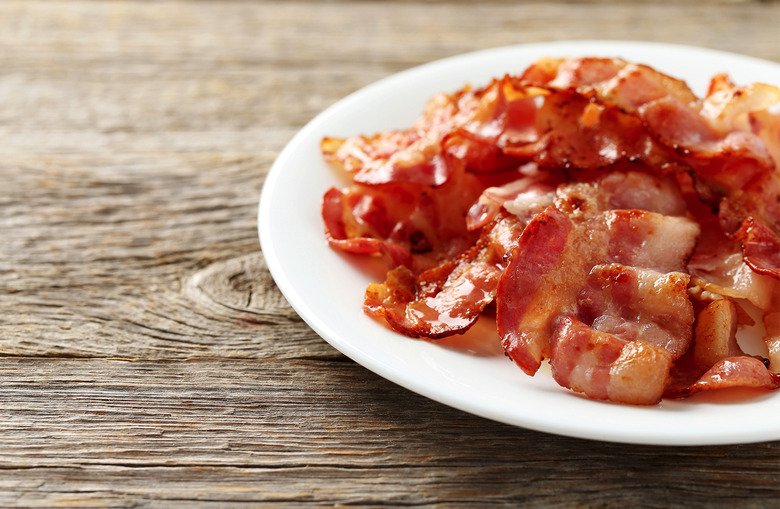Why Is Pig Meat Called 'Pork,' And Cow Meat Called 'Beef'?
When you stop and think about it, it's actually quite strange that pig meat is called "pork," cow meat is called "beef," sheep meat is called "mutton," and deer meat is called "venison." What's even stranger is that chicken meat is still called "chicken," and fish is "fish." So what gives?
The answer actually involves a rather complicated lesson in etymology, but we'll try to put it as simply as possible.
According to eGullet, it all goes back to the Norman conquest of Britain in 1066. When the French took over England, there became two ways of saying a whole lot of words, and from a gastronomic standpoint the French won out (as they usually do). This is likely because the lower-class Anglo-Saxons were the hunters (so we get the animal names from them), and the upper-class French only saw these animals on the dinner table (so we get the culinary terms from them).
So the Anglo-Saxon pig became the French porc, which was Anglicized to pork; the Anglo-Saxon cow became the French boeuf, which became beef; and sheep became mouton, (later mutton). Even chicken got a new culinary name: pullet, which is the Anglicized version of the French poulet, and is now only used to refer to a young hen. All of those French terms are still the French words for those animals (as well as their meat) today. As for fish, we most likely still call it fish because the French term for it, poisson, is too close to the English word poison.
The reason behind calling deer meat "venison" is slightly more complicated, but still has to do with the Norman Invasion (deer in French is cerf, which doesn't sound much like "venison"). According to Yahoo, the word venison derives from the Latin word venor, meaning "to hunt or pursue." Following the invasion and the establishment of the Royal Forests, any hunted animal was called "venison" after it was killed; because more deer were hunted than any other animal, the name stuck.
The Norman invasion's effect on the English language really can't be understated. Other words that now have two ways of saying them thanks to French influence include the Anglo-Saxon want to the Norman desire, ask to inquire, and hide to obscure. You're also probably pronouncing these 30 food words incorrectly.
